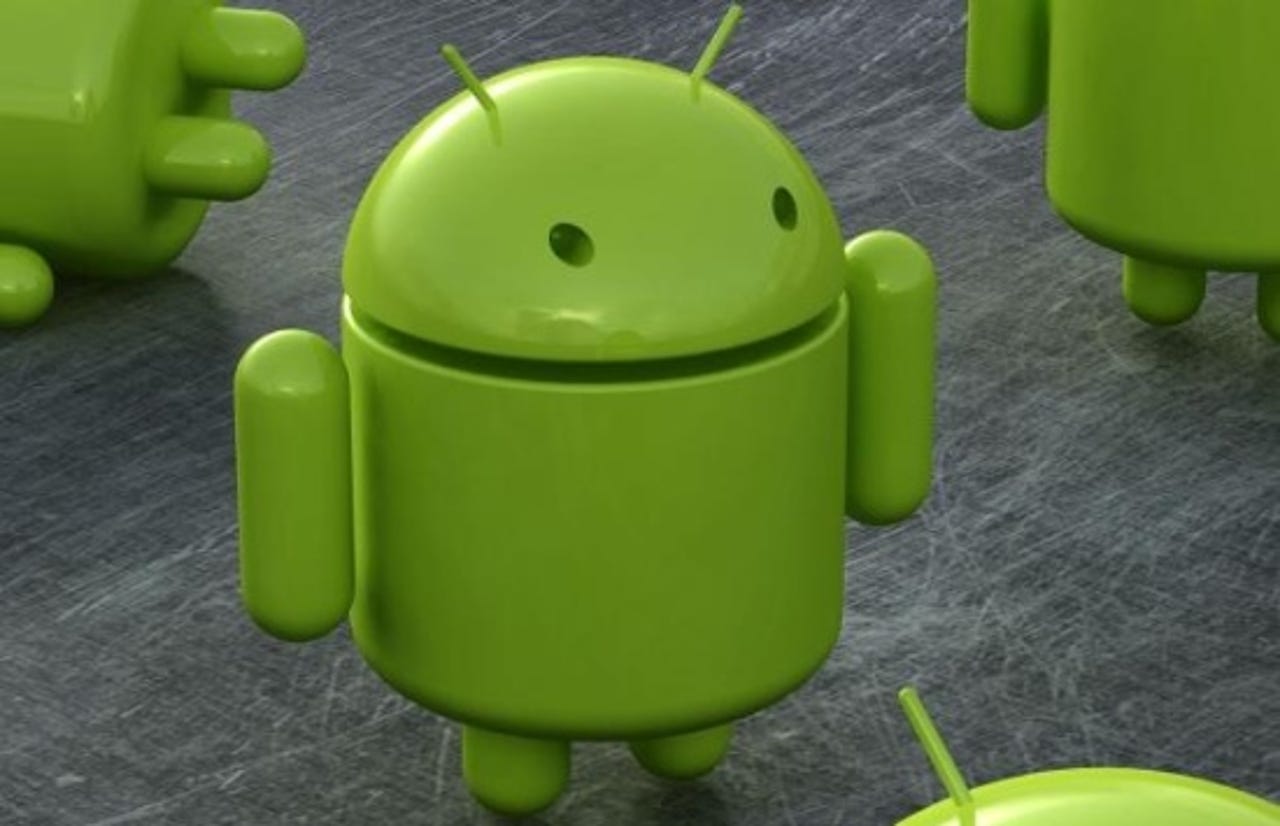Are Android smartphones finally poised to conquer the enterprise?


Android devices dominate the consumer smartphone market, but the OS is still playing catch-up in the enterprise.
While Android-powered mobiles — in all their variations — account for around two-thirds of all smartphones bought by consumers, in the enterprise the iPhone is still the smartphone of choice.
Part of the reason behind this split is that consumers often want to buy low-to-midrange devices — a segment that Android caters to well, and iOS doesn't cater to at all — whereas the enterprise tends to buy high-end devices. This is coupled with organisations' concerns about Android app security.
But with the rise of the trend for bring your own device (BYOD) it's workers, not CIOs, making the decisions about what handsets to use — which means that Android usage in business is likely to rise.
According to recent research from IDC, while the iPhone is the top company-owned smartphone, Android devices used in companies are most likely to be bought to work by staff. IDC calculated that during 2012, 87.7 million Android devices would be shipped to businesses and 15.1 million to individuals who would take their devices to work.
A real contender
And when asked 'Are Android smartphones a real option for business users?' the ZDNet-TechRepublic CIO Jury responded yes with a margin of 10 to two, suggesting that as long as a few IT department caveats are dealt with, Android could be a real rival to iOS and BlackBerry devices in the enterprise.
Thanks to BYOD, the increased use of Android devices in the enterprise is inevitable, according to Kevin Leypoldt, IS director at Structural Integrity Associates. "It's already a real option. As the Android operating system continues to evolve as a solid contender in the mobile space, it's only going to become more popular and used in business because of its growing popularity from an end-user perspective," he said.
"Current experience is proving that for IT business needs Android devices are a strong choice" — Michael Woodford, USANA Health Sciences
And Michael Woodford, executive director of IT technical services USANA Health Sciences, said his organisation's experience of Android in the workplace has been "very positive".
"The majority of our Android users only use their devices for email, calendaring, online reporting. However, we have had the best success with our technical staff using Android devices for network management, systems control and monitoring, and remote access."
He added: "It would be beneficial to reduce the number of versions of Android and to have some better quality control for apps. However, current experience is proving that for IT business needs Android devices are a strong choice."
Security
Many of the CIOs polled said Android devices are suitable for enterprise usage so long as security and management issues are tackled.
Jerry Justice, IT director with SS&G Financial Services, said Android is now enterprise ready "if you take an appropriate security approach, and you want to leverage BYOD".
Alan Bawden, commercial director at The JM Group, said Android devices are an option "as long as you have a strong mobile device management system in place to control the security on the phones with particular focus on the applications that can run on the phone and what data they can access".
But Delano Gordon, CIO at Roofing Supply Group, said from a hardware point of view the durability of the devices "is still in question" and added: "At some point the enterprise is going to have to resolve the BYOD debate with investment and security. Until then, it’s an uphill battle in the enterprise."
Mike Roberts, IT director at The London Clinic, added Android is suitable for business use provided there are effective apps covering business functionality and security.
"Android phones are just more complex to use and if you aren't a technically savvy person, then you're out of luck" — Matthew Metcalfe, Northwest Exterminating
However, not all tech leaders on the panel are convinced the security problem has been cracked: Shaun Beighle, CIO at the International Republican Institute, said "the security, or lack thereof, is simply too much of an issue to overlook".
And Matthew Metcalfe, director of information systems at Northwest Exterminating, said that Android, compared to Apple, has some better technical hooks for the enterprise — but the difficulty of use compared to Apple iOS devices prevents its wider adoption.
"Our user base consists of both devices, and the Androids leverage the smartphone capabilities less than the iOS devices. In other words, they are used more as traditional phones. They are just more complex to use and if you aren't a technically savvy person, then you're out of luck. Windows [Phone] 8 devices have an open window to grab market share."
This week's CIO Jury was:
- Jerry Justice, IT director, SS&G Financial Services
- Delano Gordon, CIO, Roofing Supply Group
- Kelly Bodway VP of IT, Universal Lighting Technologies
- Andrew Clarke, group IT director, Arcadia
- Alan Bawden, commercial director, The JM Group
- Richard Storey, head of IT, Guy's and St Thomas' NHS Foundation Trust
- Madhushan Gokool, IT manager, Storm Models
- Mike Roberts, IT director, The London Clinic
- Michael Woodford, executive director of IT technical services, USANA Health Sciences
- John Gracyalny, VP of IT, SafeAmerica Credit Union
- Shaun Beighle, CIO, the International Republican Institute
- Kevin Leypoldt, IS director, Structural Integrity Associates
Want to be part of the CIO Jury and have your say on the hot issues for IT decision-makers? If you are a CIO, CTO, IT director or equivalent at a large or small company, working in the private sector or in government, and you want to join CIO Jury pool, or you know an IT chief who should, then get in contact. Either click the Contact link below or email me, steve dot ranger at techrepublic dot com, and send your name, title, company, location, and email address.